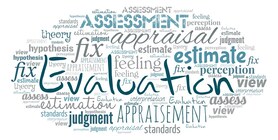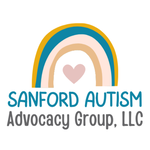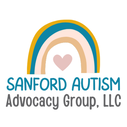|
The assessment process for Autism Spectrum Disorder (ASD) is often confusing. While most children with ASD symptoms are identified at school and evaluated for Special Education Services or an Individualized Education Plan (IEP), many are also identified by pediatricians, therapists, or even friends and family members. Getting the most accurate diagnosis will be determined by many factors, but here are some useful ones to consider:
1. Schools, medical providers, community mental health agencies, psychologists, or neuropsychologists may be able to provide formal diagnostic assessment for ASD. In schools, a team of professionals can provide an educational diagnosis of ASD for the purposes of qualification for Special Education (to get an IEP). This is different than a medical diagnosis of ASD from a medical doctor or psychologist. A medical diagnosis might be used to provide a diagnostic code so that insurance will help pay for therapy and other services, such as Applied Behavior Analysis (ABA). 2. Parents, guardians, and caregivers should know which assessments are being used in an evaluation and why. Ask which assessments are being used (or have been used) in the assessment process. While there is no medical test for diagnosing ASD, there are many ways that professionals gather diagnostic information. They might use questionnaires, observations, interviews, and/or standardized assessment measures like an IQ test. All of this information should be used together to determine the best diagnosis and treatment for your loved one. 3. The Autism Diagnostic Observation System, 2nd Edition (ADOS-2) is the gold standard for accurate assessment and diagnosis. The ADOS-2 is completed in a one-on-one setting with a professional, sometimes with other observers to help with taking notes. The assessment looks like a series of activities and questions, depending on the age and developmental level of the person being evaluated. This assessment is the most well-researched way to determine if someone has ASD or not. 4. Rating scales, such as the Gilliam Autism Rating Scale (GARS-3) and the Autism Spectrum Rating Scales (ASRS) can provide valuable information across settings. This type of information should be collected from both home and school. These rating scales alone are not usually enough to provide an accurate diagnosis. 5. A thorough assessment for Autism Spectrum Disorder should always include evaluation of cognitive and adaptive functioning. Individuals with Autism Spectrum Disorder often have a lot of strengths and weaknesses when compared to others their same age. Due to the symptoms of ASD, many people on the spectrum have difficulty with language, social functioning, and/or self-care activities. 6. A proper diagnosis of ASD will include the level of severity, or how much support a person requires. The Diagnostic and Statistical Manual, 5th Edition (DSM-V) includes three levels of severity:
7. Many individuals with Autism Spectrum Disorder also have other diagnoses. The most common are Attention-Deficit/Hyperactivity Disorder, anxiety disorders, and depressive disorders. Each of these areas should be thoroughly evaluated prior to determining which services might be most useful. 8. A family history of Autism Spectrum Disorder, whether diagnosed or not, is important information to consider. Whichever professionals are completing the assessment for your loved one, be sure to let them know if any family members have experienced Autism Spectrum Disorder symptoms. It’s also useful to note other types of mental health problems, such as anxiety and/or depression symptoms, since these are so common in general and are particularly common for those with Autism Spectrum Disorder. 9. The rigidity of Autism Spectrum Disorder sometimes looks like Obsessive Compulsive Disorder (OCD), and vice versa. A clinician should be able to assess OCD symptoms, including obsessions and compulsions, in order to determine an accurate diagnosis. A tool such as the Children’s Yale-Brown Obsessive Compulsive Scale (CY-BOCS) can be used as an interview or questionnaire to gather this information. 10. The social withdrawal of Autism Spectrum Disorder sometimes looks like Social Anxiety Disorder, and often both diagnoses are valid. Questionnaires such as the Behavior Assessment System for Children, 3rd Edition (BASC-3) or Screen for Child Anxiety Related Disorders (SCARED) can provide professionals with useful information on various anxiety symptoms and disorders. There is no one way to assess or diagnose Autism Spectrum Disorder. Hopefully these 10 tips have given you some more knowledge and, therefore, POWER in making decisions for your loved one! Thank you to our guest blogger: Erika J. Vivyan, PhD is a Licensed Psychologist in Texas. She specializes in the assessment and treatment of school-aged children, teens, and young adults. Her areas of expertise include assessment, anxiety, and behavior. Find her on Instagram or online at drvivyan.wordpress.com.
7 Comments
Crystal Sanford
12/15/2023 12:14:47 pm
Early intervention is extremally important for neurodiverse children! Through this we acknowledge that their differences can often be strengths.
Reply
4/28/2023 01:38:37 am
It was fascinating to know that the evaluation of cognitive and adaptive functioning is part of autism diagnosis. My friend wants her child to undergo an autism diagnosis evaluation. I should advise her to go for it to obtain a reliable assessment.
Reply
Crystal Sanford
12/15/2023 12:11:55 pm
We are happy that you are able to advise your friend with the information in this post! Wishing her all the best.
Reply
Crystal Sanford
12/15/2023 12:11:09 pm
Thank you Yoshishishu!
Reply
Leave a Reply. |
AuthorCrystal Sanford, M.Ed., M.A. CCC-SLP, ASDCS is an Educational Consultant, IEP & Autism Advocate and Speech-Language Pathologist. She is also the host of inspiring podcasts, Thriving Special Families and Thriving Autism Families! Her passion is advocating STRONG alongside fellow Autism and other fellow parents of neurodiverse children, helping them to persistently pursue what their children deserve at school. In her free time, she enjoys gardening and spending time with her husband and two children in San Diego, CA. Archives
November 2023
CategoriesAll Amazing Grace Autism Info IEP Advocacy SAC Company Info Thriving Special Families Tips And Strategies |
Photos from Ivan Radic (CC BY 2.0), Ben Taylor55, Oregon State University, C. VanHook (vanhookc), Rod Waddington, bobobahmat, Ivan Radic, marcoverch, Szhlopp, quinn.anya, bennylin0724, Gamma Man, Lorie Shaull, vhines200, davidstewartgets, truewonder, wuestenigel, ecosistema urbano, Phil Scoville, Our Dream Photography (Personal), Alexander king79, Dick Thomas Johnson









